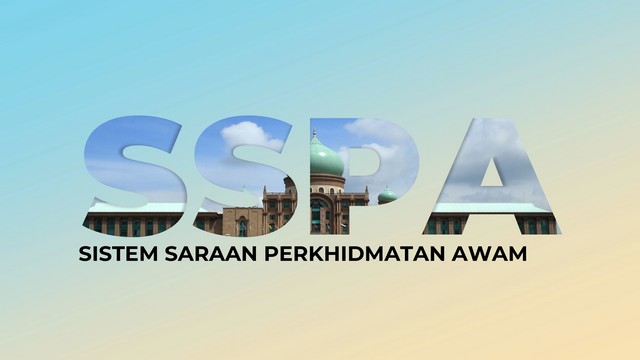The Role of SSPA in Elevating Malaysia’s Public Sector
Public service forms the backbone of any nation, ensuring that government policies and initiatives are effectively implemented and that citizens receive the services they need.
In Malaysia, the public sector has long been recognised for its crucial role in maintaining the country’s social and economic stability.
However, as the demands on public services evolve, so too must the systems that govern them.
Recognising this, the Malaysian government has introduced the Sistem Saraan Perkhidmatan Awam (SSPA) or the Public Service Compensation System, aiming to reform and enhance the public sector for the benefit of both civil servants and the broader community.
The Significance of Public Service
Public service encompasses a wide range of responsibilities, from healthcare and education to law enforcement and infrastructure development. Civil servants are the lifeblood of this system, tasked with executing government policies, providing essential services, and ensuring the well-being of the nation’s citizens. As Malaysia continues to develop, the demands on its public service have grown, necessitating a system that not only rewards civil servants fairly but also motivates them to deliver their best performance.

A robust public service is critical to the country’s success. It ensures that public policies are implemented efficiently and that citizens have access to essential services. Therefore, it is imperative that the systems governing public service are continuously updated to meet the changing needs of the nation. The SSPA is a significant step in this direction, aiming to address the challenges faced by civil servants and improve the overall effectiveness of the public sector.
Understanding the SSPA
The Sistem Saraan Perkhidmatan Awam (SSPA) represents a major shift in how Malaysia’s civil servants are compensated and managed. Prior to the introduction of the SSPA, the public service remuneration system underwent various changes, each aimed at improving the welfare of civil servants and ensuring their compensation was in line with the cost of living. However, as economic conditions evolved, it became clear that a more comprehensive reform was needed.

The SSPA was conceived to address several key issues within the public service. One of its primary objectives is to enhance productivity among civil servants, ensuring that the public sector remains efficient and responsive to the needs of the people. Additionally, the SSPA seeks to adjust civil servants’ income to better reflect the rising cost of living, which has been a growing concern in recent years. Furthermore, the system is designed to ensure fiscal sustainability, balancing the need for fair compensation with the government’s broader financial responsibilities.
Key Features of the SSPA
The SSPA introduces several reforms aimed at empowering the public service and improving the welfare of civil servants. Among the most notable changes is the increase in salaries across various levels of the public service. This move is designed to not only improve the financial well-being of civil servants but also to attract and retain top talent within the public sector.

In addition to salary increases, the SSPA also includes changes to the structure of allowances. These changes are intended to make the allowance system more equitable and reflective of the duties and responsibilities of civil servants. For example, certain allowances may be adjusted based on the level of responsibility or the cost of living in different regions of the country.
Another key aspect of the SSPA is its focus on talent management. The system aims to create a more meritocratic environment within the public service, where promotions and rewards are based on performance and contributions rather than seniority alone. This shift is expected to foster a culture of excellence and innovation within the public sector, ultimately benefiting the public.

One of the most significant decisions under the SSPA is the government’s commitment to increasing the minimum income of civil servants. This move reflects the government’s recognition of the financial pressures faced by many public servants, particularly those in lower-paying positions. By ensuring that all civil servants earn a fair wage, the SSPA aims to reduce financial stress and improve job satisfaction across the public sector.
Expected Outcomes
By addressing the aforementioned key areas, the SSPA is expected to have a positive impact on Malaysia’s public service. By increasing salaries and improving the overall compensation package, the system aims to attract and retain top talent within the public sector. This, in turn, is expected to lead to a more motivated and capable workforce, better equipped to meet the needs of the public.

In the long term, the SSPA is aligned with Malaysia’s broader vision for a modern, high-performing public sector. The system is designed to foster a culture of excellence and innovation, where civil servants are rewarded for their contributions and encouraged to continuously improve their skills. By enhancing the public service, the SSPA will ultimately benefit all Malaysians, ensuring that government policies are implemented effectively and that citizens receive the services they need.
The Sistem Saraan Perkhidmatan Awam (SSPA) represents a significant step forward in the elevation of Malaysia’s public service. By addressing the challenges faced by civil servants and introducing reforms that improve compensation and talent management, the SSPA is poised to enhance the efficiency and effectiveness of the public sector. While there are challenges to overcome, the government’s commitment to continuous improvement and the well-being of civil servants bodes well for the future. As the SSPA is fully implemented, it holds the promise of a brighter future for both civil servants and the nation as a whole.

References
- “Halaman Utama: Laman Kajian Sistem Sarana Perkhidmatan Awam”
- ” Sistem Saraan Perkhidmatan Awam (SSPA) Dan Kenaikan Gaji Penjawat Awam”
- “[LIVE] Datuk Seri Anwar Ibrahim’s announcement at the 19th Majlis Amanat Perdana Perkhidmatan Awam”
- “Portal Sistem Saraan Perkhidmatan Awam — Jabatan Perkhidmatan Awam, Jabatan Perdana Menteri”






